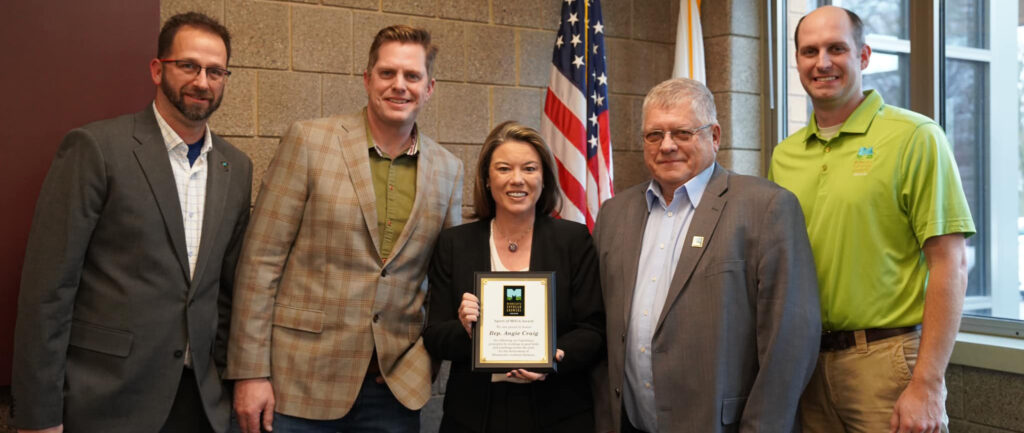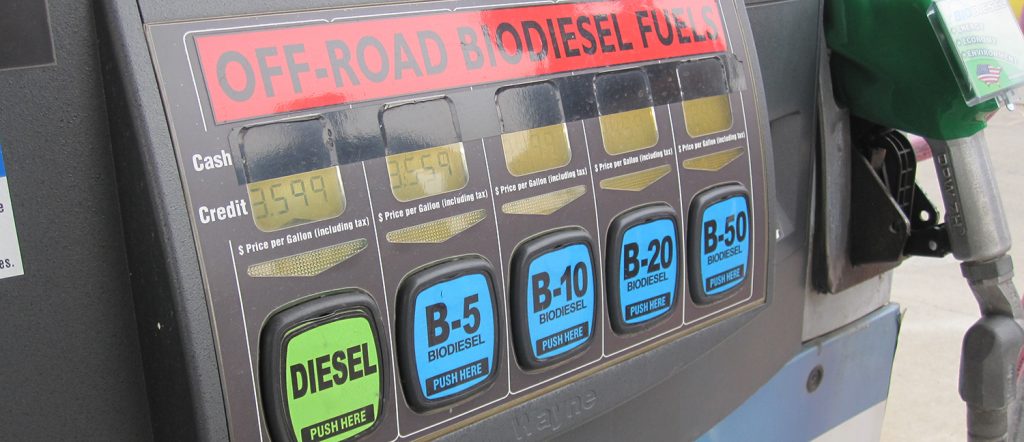House committee holds hearing on MDA biodiesel report
Depending on what side of the biodiesel aisle you stand, Tuesday’s hearing before the House Commerce and Regulatory Reform committee was either a win-win for the state and farmers, or an unnecessary mandate for diesel users and fuel suppliers.
Tuesday’s hearing to discuss the Minnesota Department of Agriculture’s biodiesel report fueled testimony from both sides of the aisle. Opponents said the biodiesel mandate went against the free market, was hurting Minnesota’s fuel economy and that Minnesota wasn’t ready for B20 because the infrastructure wasn’t in place.
Biodiesel proponents touted the quality of the fuel, the value it brought to the state’s economy, the boost it gives to rural economies and the environmental benefits it provides in terms of clean air.
“Back in 2000-2001, I was one of the tough, ornery farmers to come up here to testify,” said Jim Willers, who testified as chairman of the Minnesota Biodiesel Council. “The reason we were up here is because soybean prices were low and we had an excess supply of soybean oil.”
Willers told the committee the goal was to help rural economies, reduce dependence on foreign oil and create jobs.
“We’ve done all those things and done them well.”
Renewable Energy Group, MN Soy Processors and Ever Cat Fuels all testified in favor of biodiesel. Letters of support were also sent from the Minnesota Soybean Growers Association, Minnesota Farmers Union, Minnesota Farm Bureau, the Center for Energy and Environment and the American Lung Association of Minnesota.
Representatives from Flint Hills, Magellan and the American Petroleum Institute testified against biodiesel, raising concerns they had about infrastructure.
“I am not here to testify on the merits of B20,” said Brett Webb of Flint Hill Resources. “I am here to testify on the lack of infrastructure.”
The hearing came on the heels of an MDA analysis of the economic impact of biodiesel, which found biodiesel has had a significant impact on the state’s economy.
“Biodiesel adds $1.7 billion in economic activity, adds $240 million to the state’s ag economy and adds .63 to the value of my soybeans,” Willers testified. “I’d say it’s a win-win for everyone, and I support the B20 mandate.”
A few of the report’s highlights:
- Minnesota consumes 1 billion gallons of diesel fuel a year with 77 million gallons coming from biodiesel.
- The state currently produces about 74 million gallons, or 96 percent, of its own biodiesel to meet the state’s minimum biodiesel blending requirement. Since Minnesota is an open market, it imports the remaining 4 percent from other states to fulfill the consumption demand.
- Biodiesel benefits many economic sectors in MN, including agriculture, manufacturing, transportation, wholesale and retail trade services, finance, insurance, real estate and public utilities.
- For every 1 million gallons of production, biodiesel contributes $22.8 million in statewide total economic output and supports 73 jobs.
- As a whole, biodiesel’s total economic impact is $1.7 billion annually and it supports 5,397 jobs in Minnesota.




